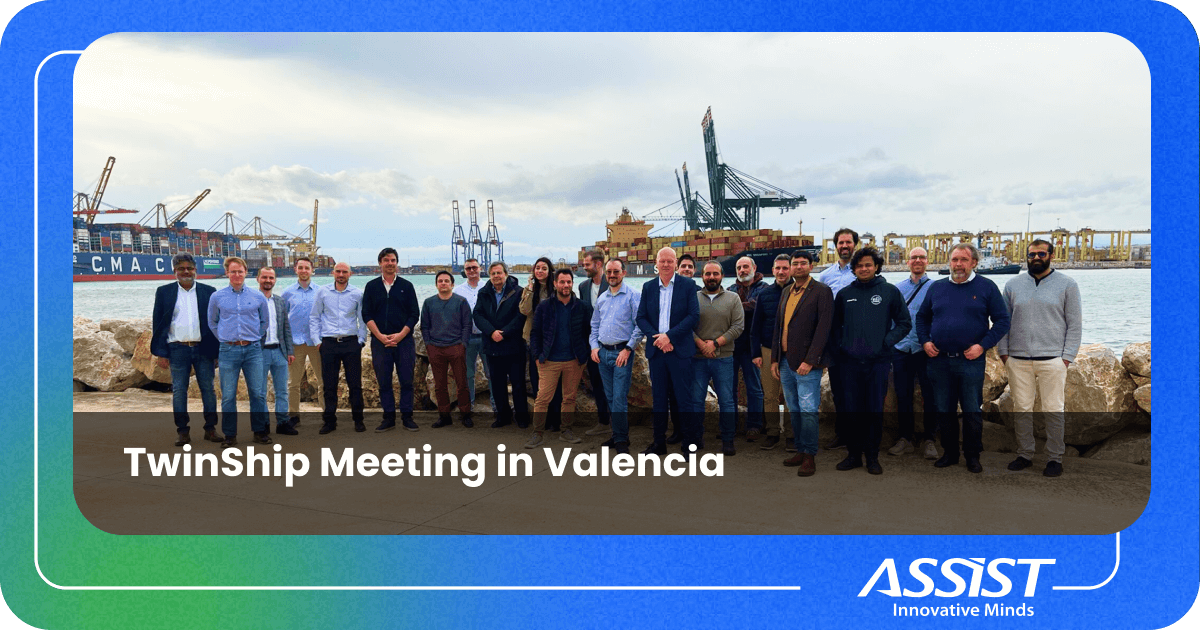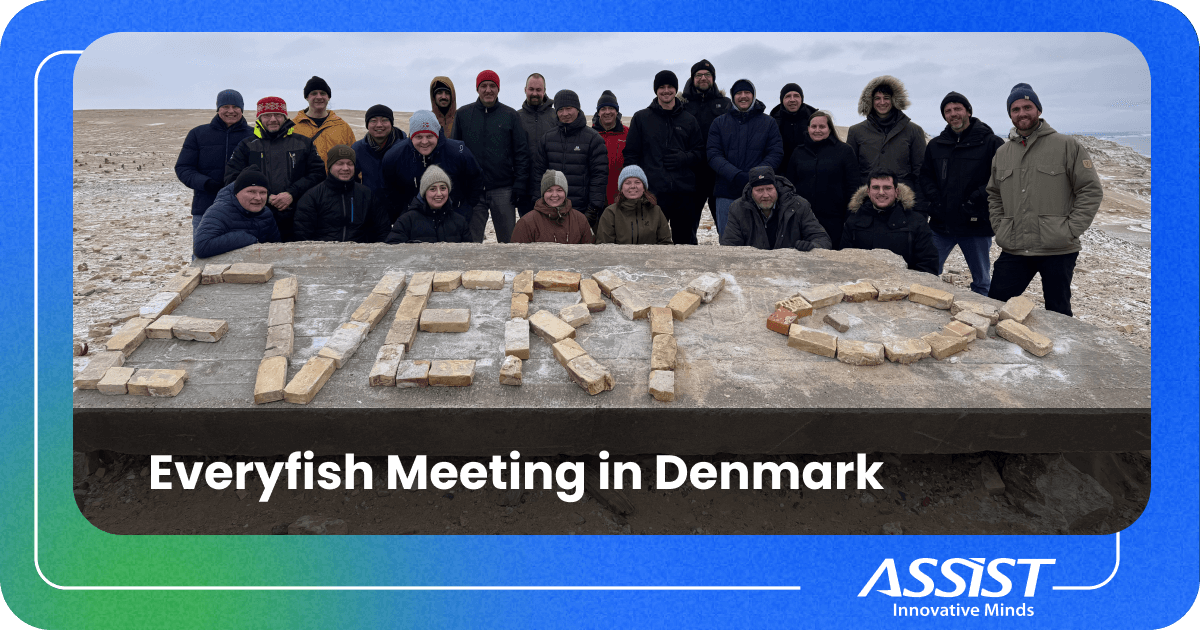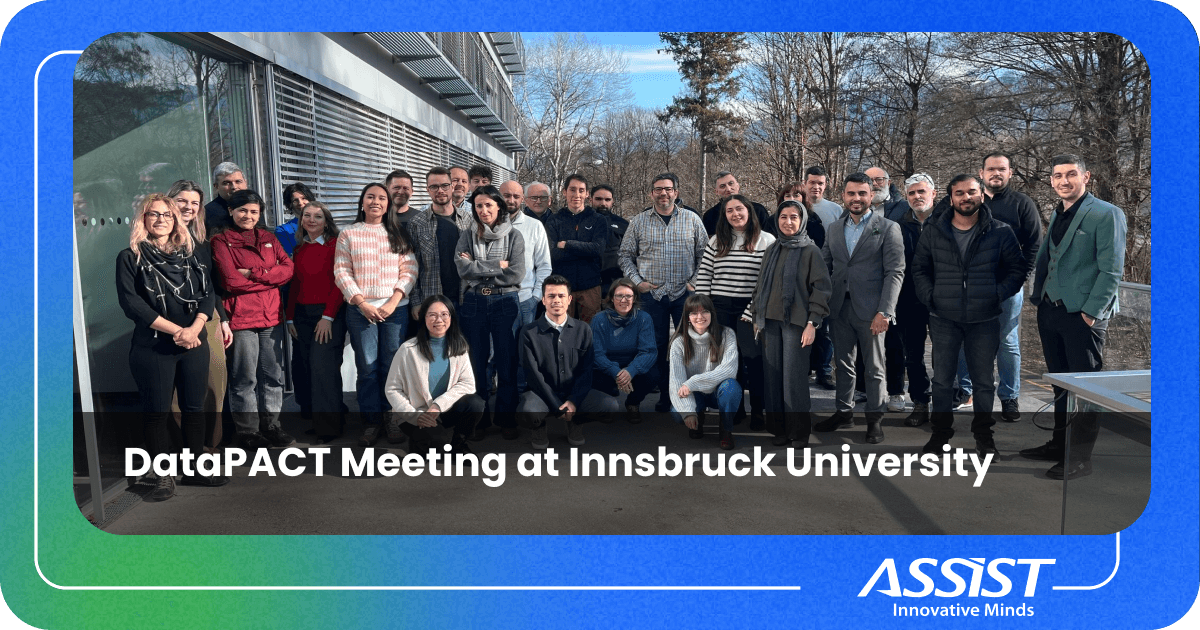35 industry leaders visited ASSIST Software during Suceava Business Marathon 2025
On April 14, the ASSIST Software team participated in the official networking event of the Maratonul de Business Suceava 2025, opened by His Excellency Nicolas Warnery, Ambassador of France in Romania. The perfect introduction to the moment when our team hosted a business delegation of 35 leaders from companies with a strong presence in Romania and Europe: Renault, Orange, BRD - Groupe Societe Generale, Groupama, Veolia, Helexia Group, Decathlon , ELTRA, Up, Regina Maria, Reteaua de sanatate, and others. Their visit was part of the Maratonul de Business Suceava 2025 (Suceava Business Marathon 2025), coordinated by #CCIFER in collaboration with the French Consular Agency in Iași and the Alliance Française.
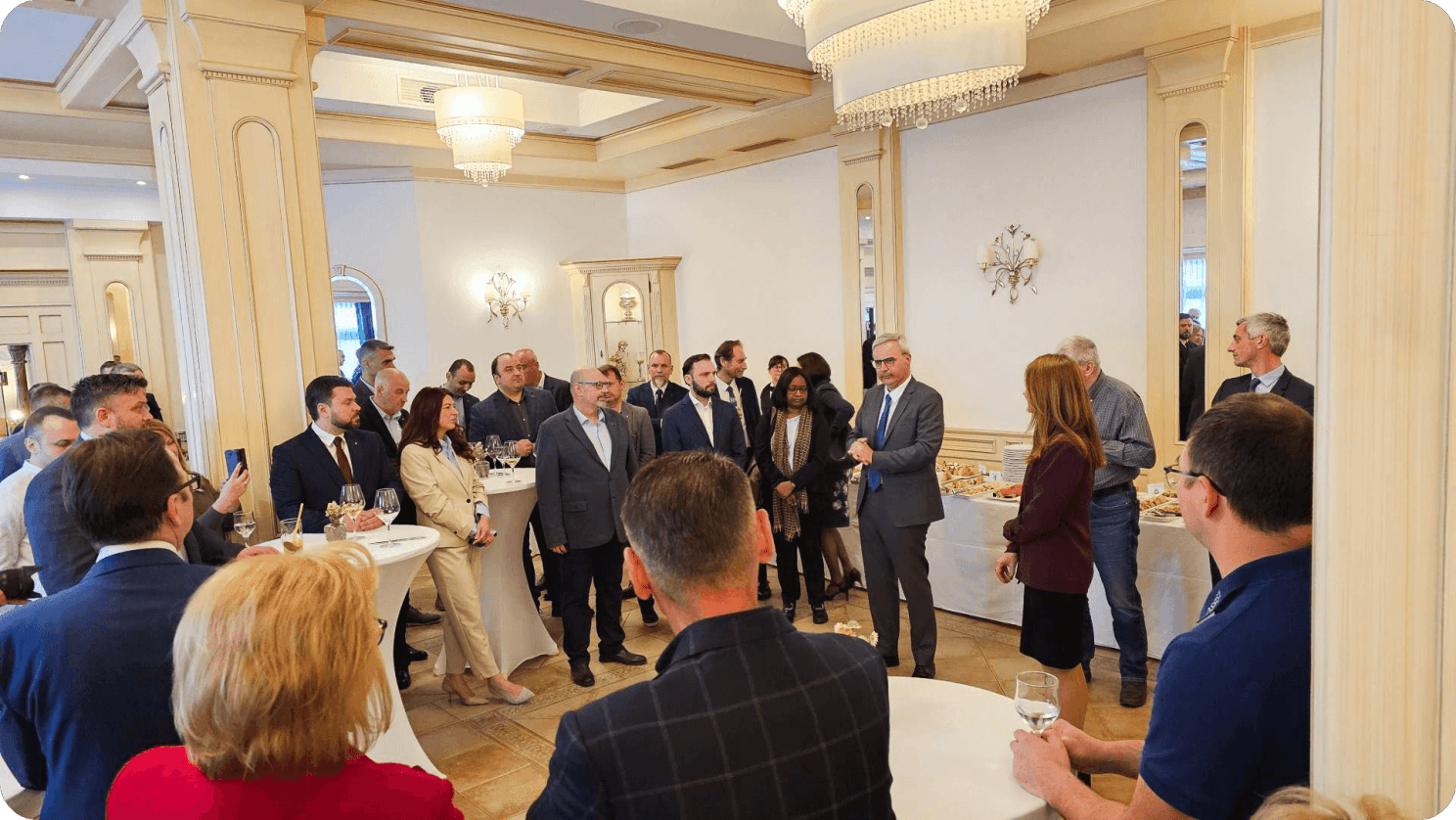
We welcomed this group to share what drives our work in software engineering and digital strategy and explore ideas with long-term value. The visit was a highlight for our team. Hosting professionals from a wide range of industries, such as energy, finance, retail, healthcare, and logistics, created the right setting for high-level conversation and practical exchange.
Key Discussion #1 – Digital Transformation in Enterprise Environments
The core of the dialogue focused on how digital transformation is approached across large organizations. Participants expressed interest in integrating modern technologies into complex internal systems. We discussed how, at the enterprise level, transformation is not tied to a specific tool or trend but to a company's ability to adopt change structurally and gradually.
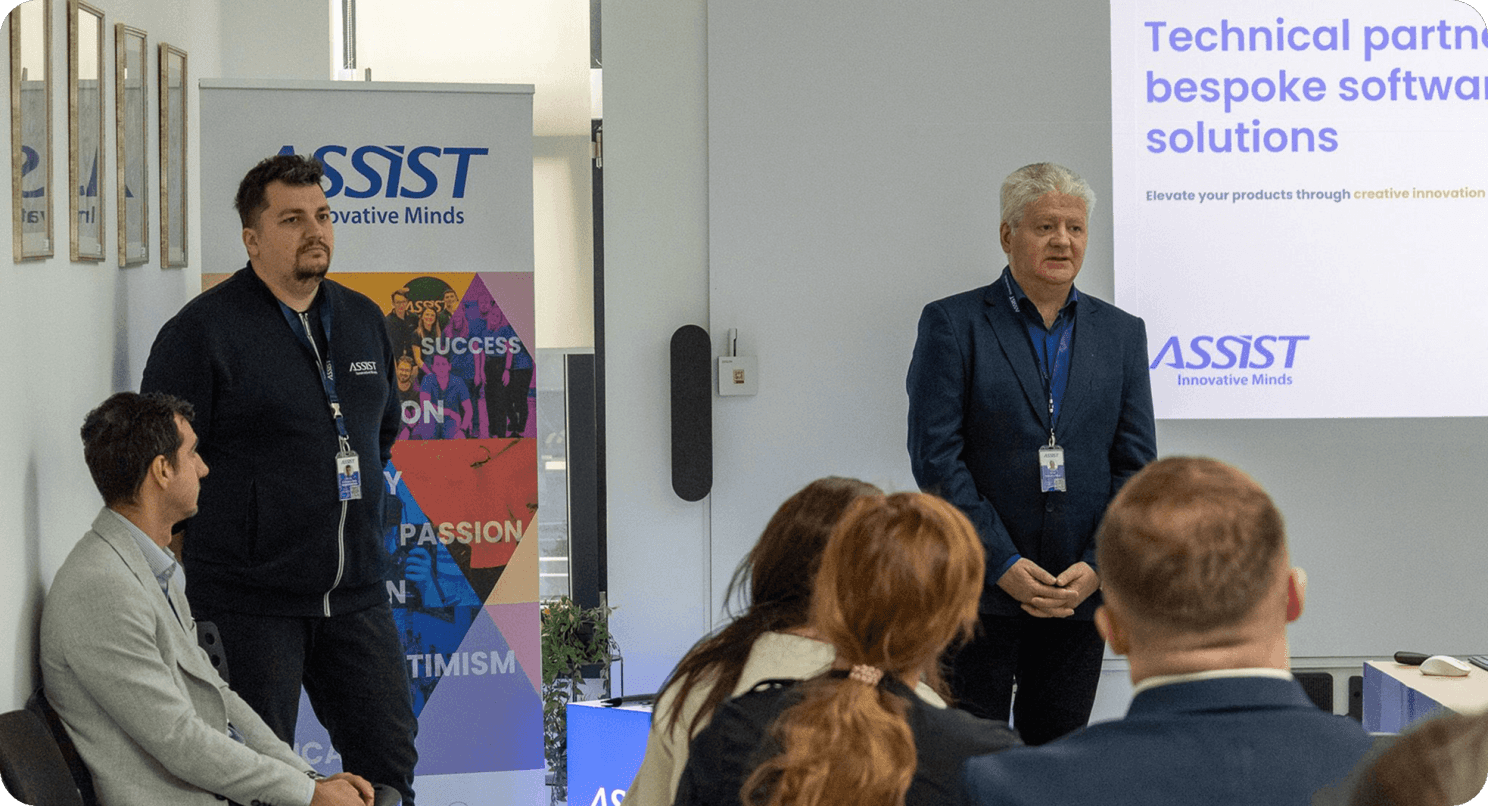
The challenges are familiar among enterprises: maintaining legacy systems that are still critical to operations, managing data that sits across silos, and implementing new technologies without disrupting core processes. We shared our experience helping enterprises bridge old and new systems through custom software.
Another common point was the importance of digital maturity assessments. We discussed the value of auditing internal workflows and platforms before initiating large-scale changes, which helps organizations avoid redundant investments and set priorities based on business goals, not tech trends.
Read more:
Key Discussion #2 – AI, Automation, and Operational Efficiency
Through our experience, we have witnessed companies expressing a deep interest in AI-supported decision systems, workflow automation, and predictive maintenance in industrial environments.
Therefore, we provided examples from projects where AI was used to optimize resource allocation, extract value from unstructured data, or automate routine processes. The emphasis remained on fit-for-purpose solutions. The conversation centered on AI as an enabler, not a destination, and on understanding where it adds measurable value.
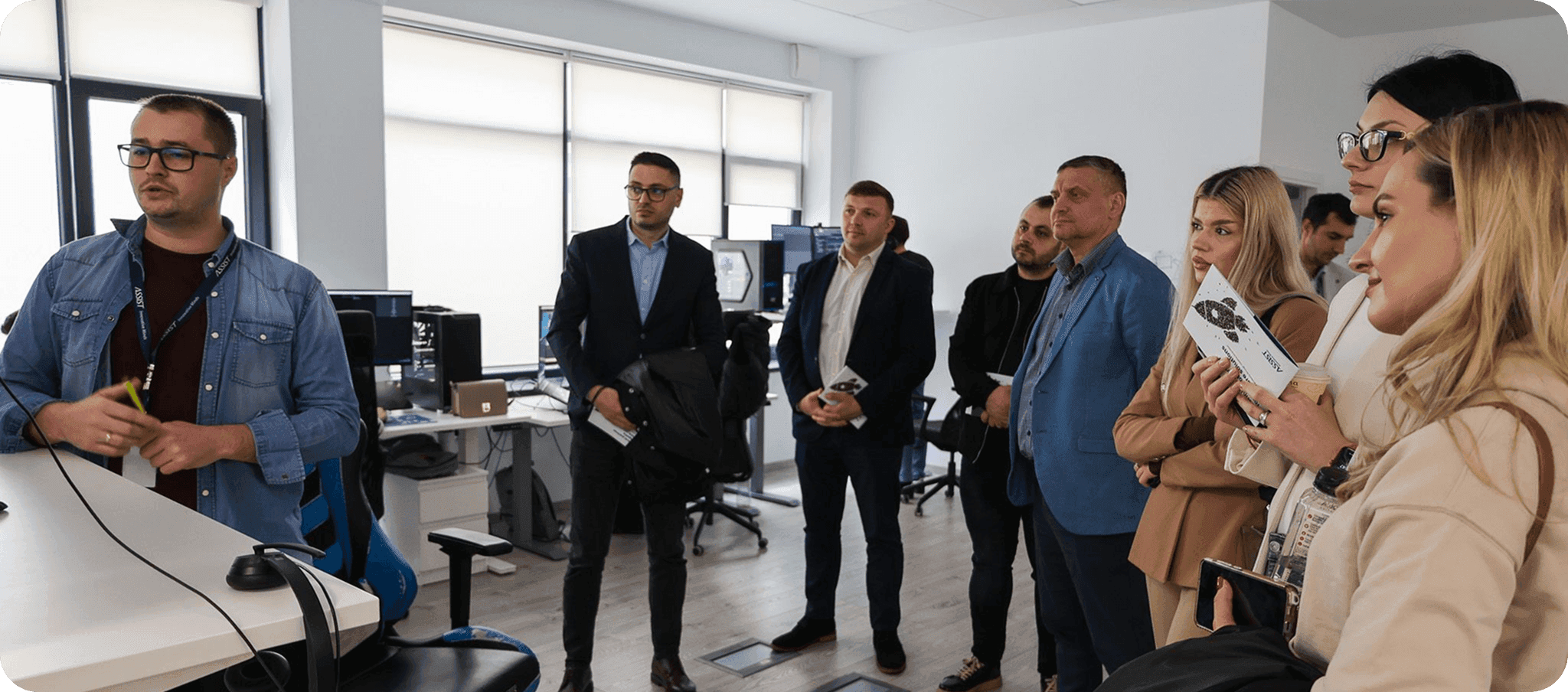
We explained how ASSIST structures exploratory engagements, often starting with a discovery phase. As a direct follow-up to the event, we invited companies to book a free digital transformation workshop with our senior consultants. These sessions are focused on identifying specific needs and co-designing an implementation path that considers internal realities, capabilities, and timelines.
Read more:
Key Discussion #3 – Scaling Systems and Building Flexibility
Scalability was another strategic focus, particularly for companies operating in multiple regions or preparing for expansion. The delegation included organizations with diverse operational footprints, and the discussions explored what it means to scale software solutions without compromising governance, performance, or adaptability.
We presented our approach to building modular, cloud-native systems that can evolve alongside a company's growth. For teams facing fast-changing market requirements, the ability to reconfigure platforms and integrate new functionalities without rebuilding from scratch was highly appealing.
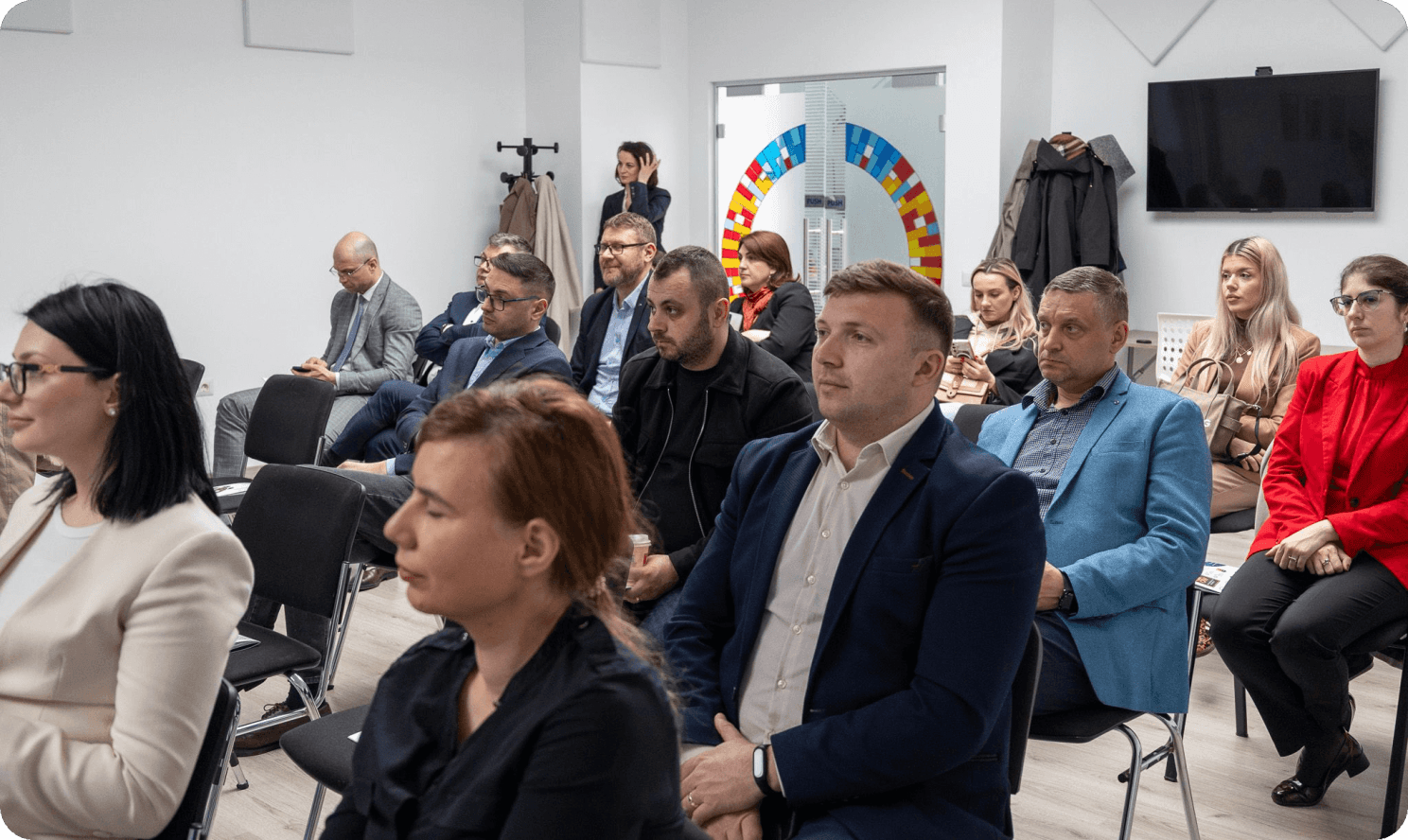
Discussions also covered platform consolidation, particularly in companies that manage multiple services or brands. We discussed strategies for maintaining a coherent user experience while enabling flexible back-end logic - something ASSIST has implemented in large-scale B2B and B2C platforms for international clients.
Read more:
Key Discussion #4 – Sustainability and Tech with Responsibility
Companies are no longer treating digital and environmental strategies as unrelated. We explored how software can help monitor resource usage, optimize logistics, and provide transparency on environmental impact.
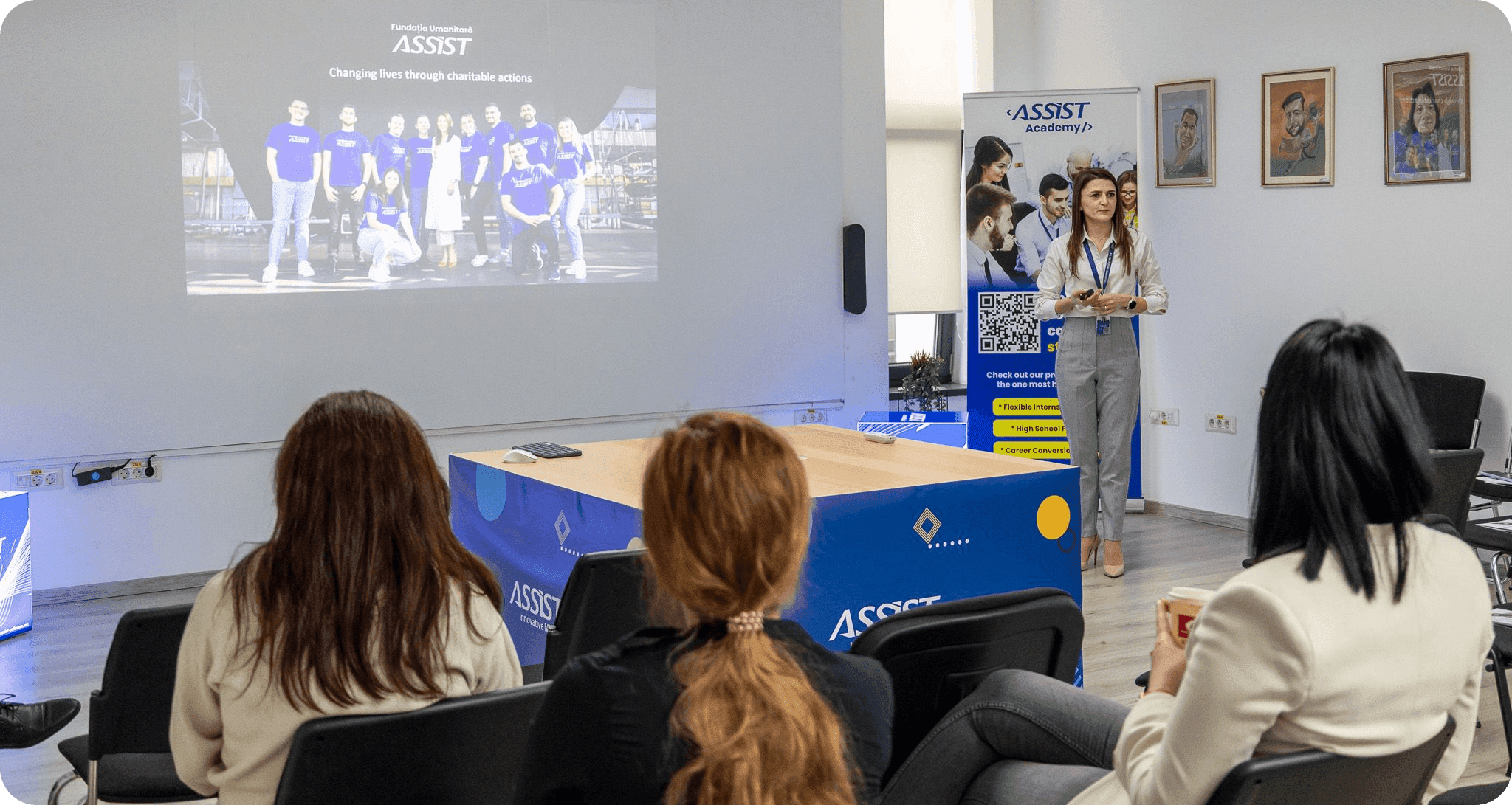
The delegation showed interest in this direction, particularly in the context of CSR strategies that are built into core operations, not just peripheral initiatives.
There was a strong appetite for cross-sector collaboration, with several participants expressing interest in joint projects that combine enterprise tools with long-term social impact.
Conclusion – A Foundation for Collaboration
The visit's format encouraged thoughtful dialogue. The questions raised reflected a shared desire to improve, evolve, and collaborate across industries.
From system modernization and AI planning to sustainability and platform scalability, the conversations were relevant, detailed, and forward-facing. We appreciated the openness of the delegation, the range of perspectives brought to the table, and the opportunity to contribute to a shared vision of digital progress.
We thank the CCIFER team and every participating company for their presence and engagement. We look forward to the next steps.
Contact us for your FREE digital transformation workshop: https://assist-software.net/contact-us
